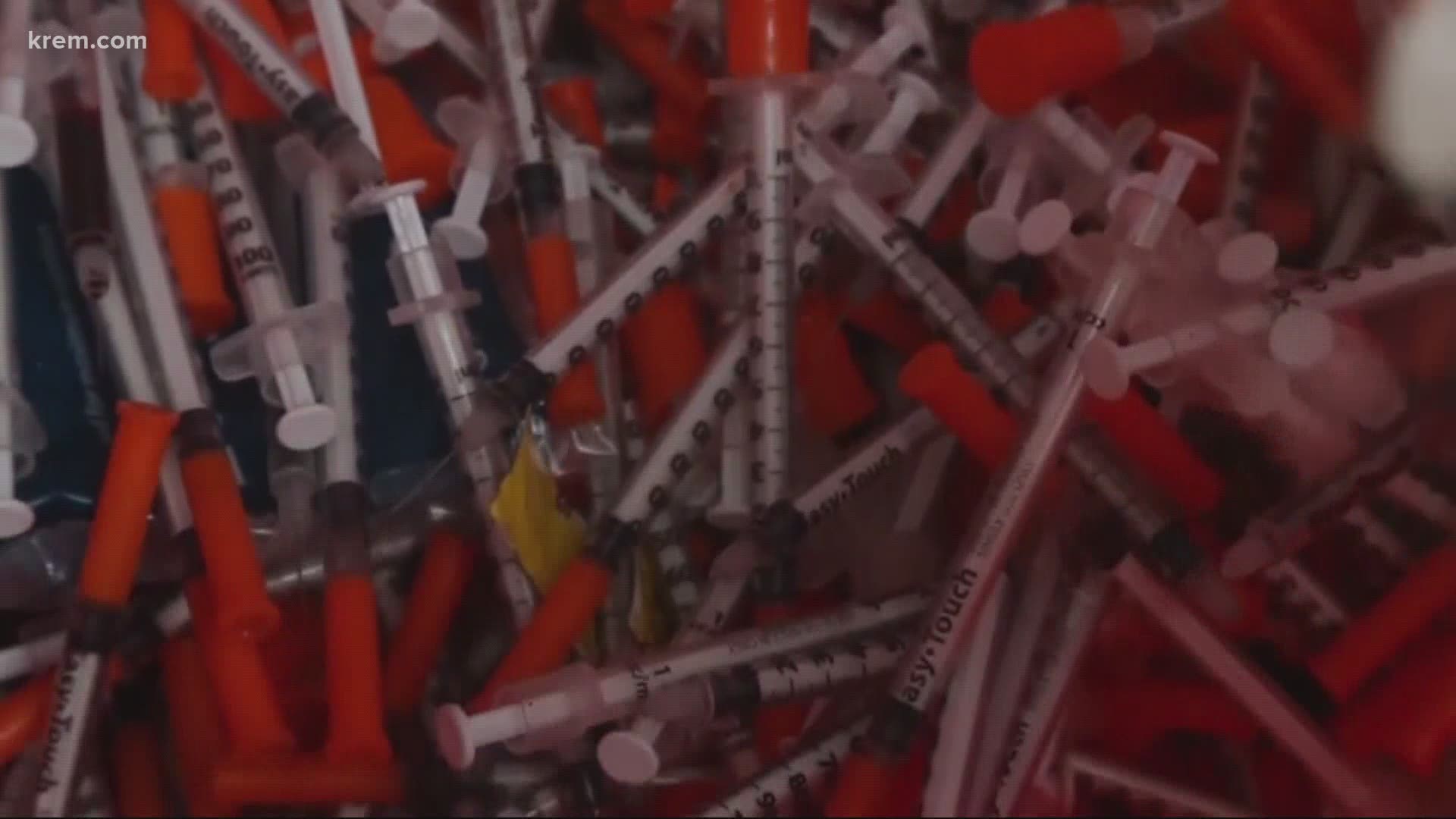SPOKANE, Wash. — Possessing small amounts of drugs will become a misdemeanor in Washington if a bill passed by the state legislature is signed by Governor Jay Inslee.
Currently, simple possession is not a crime in Washington, following a blockbuster decision by the state supreme court.
Earlier this year, the court ruled that the state law that made possession a felony was unconstitutional, because it did not require that the defendant know they had drugs on them in order for them to be convicted. They struck down the law, meaning since then there has been no law criminalizing the possession of small amounts of any drug.
Because of the decision, local police departments said they immediately stopped making possession arrests. In addition, some people were let out of jail or prison, and many others are in the process of having their sentences reduced.
Even many fervent criminal justice reformers felt a more permanent solution was needed, and so with little time remaining in the legislative session, state lawmakers scrambled to come up with a replacement drug law that met the standards set by the court.
They could have theoretically opted to simply add the word "knowingly" to the old law. Instead, the legislature passed a 45-page bill with ambitious overhauls to the state's drug policy.
To be sure, the bill does add knowledge requirements to several drug statutes.
But rather than re-instituting possession as a felony, lawmakers opted to make it a misdemeanor. In Washington that carries a maximum penalty of 90 days in jail and a $1,000 fine. Some advocated for classifying possession as a gross misdemeanor instead, which carries harsher penalties, but those attempts failed.
The bill also states that the misdemeanor classification will expire in two years, meaning possession would become decriminalized once more unless the legislature acts in some way before then.
In addition, the bill requires that police divert people to treatment for their first two arrests. Only on their third or later arrests for possession can they actually be referred to the prosecutor for charges.
The vast majority of the 45 pages deal with drug treatment. The bill creates a large committee to help form extensive statewide policies on assisting with recovery and providing treatment services, and it provides millions of dollars to that end.
The bill passed with an overwhelming 80-18 majority in the House, but only narrowly 26-23 in the Senate, where conservative legislators expressed concerns that a misdemeanor isn't a strong enough incentive to get certain people into treatment.
Inslee has not yet signed the bill, but he expressed support for it in a press conference on Monday.
"We'd like people to get treatment. We want to help them get treatment. And we want to have some incentive that they do so," he said. "And I think that was the general tenor of where the legislature ended up."
Spokane Police Chief Craig Meidl says the bill could have a variety of effects on the ground locally.
For one, he said with a misdemeanor, his officers would likely issue citations to appear in court, rather than arresting people and bringing them straight to jail as they would for a felony.
Secondly, Meidl says whereas the state is responsible for the costs of processing felony convictions, misdemeanor costs would fall to local jurisdictions.
And third, he shared the concerns of some lawmakers that a misdemeanor may not be strong enough incentive for people to get help.
But, Meidl said ultimately it's far too early to know exactly how the court decision has already affected Spokane, let alone how this bill could down the road.
"In the end I would say the biggest takeaway is we have yet to see what kind of impact this is going to have on our city," he said. 'Time will tell as far as... is this truly a good thing for the community? Or... does the data tell us that this isn't going to be as productive as the former bill? Or maybe it is."

